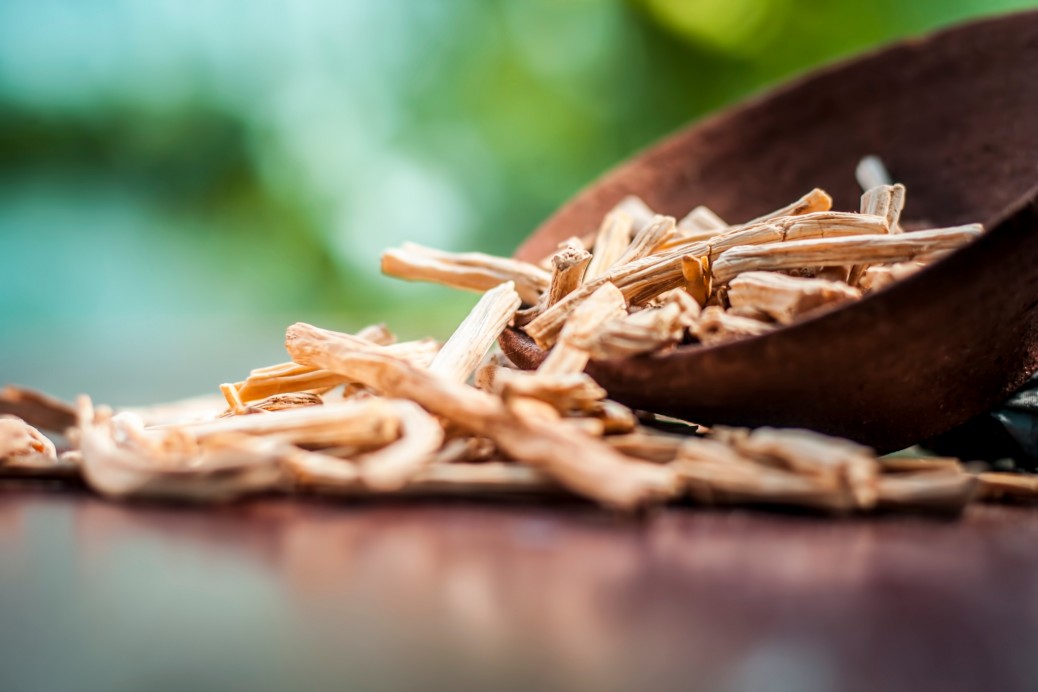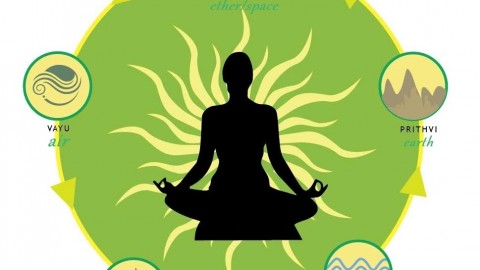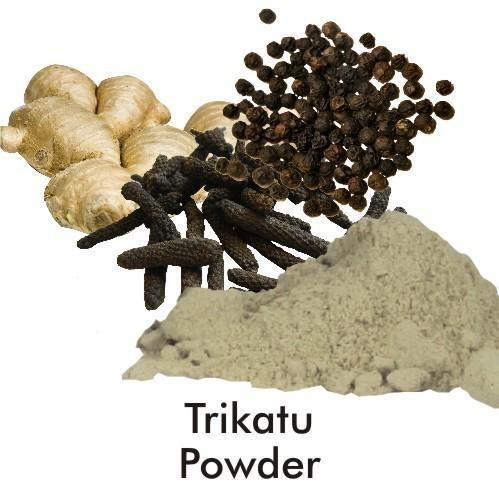If ashwagandha is considered the ‘King of Ayurvedic Herbs’ then shatavari is most certainly the ‘Queen.’ As part of the asparagus family, the Shatavar plant is also known as Asparagus racemosus or ‘wild asparagus.’ It is an adaptogenic herb, able to help the body cope with physical and emotional stress. Shatavari has been used for centuries in Ayurvedic medicine and is considered a general health tonic to help rejuvenate and heal both body and mind. Another major healing component of this herb is its beneficial impact on the female reproductive system.
Shatavari is a highly revered plant in the Ayurvedic Apothecary, bestowing a beautiful and calming virya (energy) to all that utilize it. Let us take a closer look at how the shatavari herb can assist your healing Ayurvedic journey.
The term shatavari can be broken down into two Sanskrit terms, “shat” meaning one hundred and “avar” meaning below. Thus, shatavari literally translates to ‘one hundred roots’. If you have ever seen the amazing root system of this plant, it is easy to see how it got its name! Within these strong and abundant roots is where the medicine lies. Another translation of shatavari is “who possesses one hundred husbands.” This herb has been known to rejuvenate the female reproductive system so powerfully that one could theoretically reproduce with one hundred husbands–a folkloric testament to the potency of the shatavari herb!
Shatavari can increase breast milk production and nourish the ovum. It has both a nourishing and purifying effect on the female reproductive organs and is suggested to be used throughout the many phases of womanhood. Shatavari has traditionally been used in Ayurveda to strengthen female fertility and can also be used during pregnancy to provide nourishment to both the mother and fetus. Shatavari can even help stabilize a woman’s body and emotions throughout her moon or menstrual cycle.
When a woman transitions into perimenopause, one of the common effects on the body is a decrease in estrogen. Shatavari can support women through perimenopause as well as menopause because it contains phytoestrogens which are the precursor to estrogen. Studies show that phytoestrogens may reduce hot flashes, stabilize mood and also help maintain normal bone density, making it a terrific herb to take for osteoporosis prevention. Lastly, for any women who have undergone a hysterectomy, shatavari, with its abundance of phytoestrogens, can help to balance and restore hormone levels.
Shatavari Benefits Everyone!
Shatavari is an excellent herb for women, but men can use it too! Additional benefits attributed to the shatavari herb are…
1. Increasing shukra or semen production
Assisting in rebuilding and replenishing the immune system and tissues of the body adaptogenic properties which help the body and mind withstand stress as a nervine sedative and tonic which calms the nervous system while also restoring it to soothe anger & irritability in the mind as a demulcent, bringing moisture to dry and/or inflamed membranes of the lungs, stomach, kidneys, stomach, large intestines and sexual organs relieving constipation, ulcers and chronic diarrhea supporting the respiratory system, especially when one is experiencing a sharp, dry cough and/or sore throat.
2. Providing emollient or moisturizing properties to the skin, making it perfect for dry vata or combination pitta type skin.
3. Soothing a stiff neck or sore joints when applied topically.
*Shatavari is best for vata and/or pitta constitutions or when one is experiencing an imbalance in vata and/or pitta dosha
Traditional Ayurvedic Methods of Taking Shatavari
The practice of Ayurveda recommends mixing ½ teaspoon of Shatavari Powder into ½ of a cup of tepid water in the AM & PM, at least 1-2 hours away from meals. This method of mixing powdered herbs with water is called an Ayurvedic churna. A churna is a wonderful way for all of your senses to connect with the plant and its medicine. Having the opportunity to taste, touch, smell and see the herbal powder also increases the earth element within you which, in turn, cultivates a grounded energy for your body and mind.
A Delicious Recipe For ‘Heart Opening’ Shatavari Milk you will need:
- 1 teaspoon shatavari powder
- 1 teaspoon ghee*
- 1 teaspoon dried rose petals
- ¼ teaspoon cardamom powder
- ¼ teaspoon turmeric powder
- ¼ teaspoon cinnamon powder
- 1 cup milk**
To cook, simply combine all of the ingredients in a saucepan and slowly whisk the herbs and oil together over medium to high heat. Once warm, remove from heat and pour into your favorite teacup or mug. Enjoy as is or with a pinch of jaggery or raw sugar to taste
*Traditionally, Ayurveda recommends ghee for its ojas building action; yet, you can substitute coconut oil for a vegan alternative.
**Traditionally, Ayurveda recommends the use of an unpasteurized raw whole cow’s milk for its ojas building properties; however, you can use an alternative milk such as oat or almond milk.
High Vibrations & Healing with Shatavari
Shatavari is a divine plant and we are grateful to have the opportunity to experience her regal, feminine and potent plant medicine! From restoring the health and vitality of the female reproductive system, to providing maximum hydration for our internal and external bodies, shatavari is an herbal power house and one which we should always have in our home apothecaries. This way, we can gracefully endure any challenges which life is surely going to bring. Within each challenge comes great knowledge and growth. May we all have shatavari by our sides to keep us calm, collected and filled with herbal intuitive wisdom.
Contraindications For Taking Shatavari
Ayurveda does not recommend intaking shatavari if there is high ama, or toxins, in the body. It is also contraindicated if one is experiencing a kapha imbalance or excess congestion. Being a member of the asparagus family, shatavari has a diuretic effect and should be used with caution for people who are taking diuretic medicine. Lastly, if one is sensitive to phytoestrogens or has an estrogen sensitive tumor, shatavari is also contraindicated. Please consult your doctor or qualified herbalist if you have questions about your health and how shatavari can benefit you.
Tags: Ayurveda Shatavari









